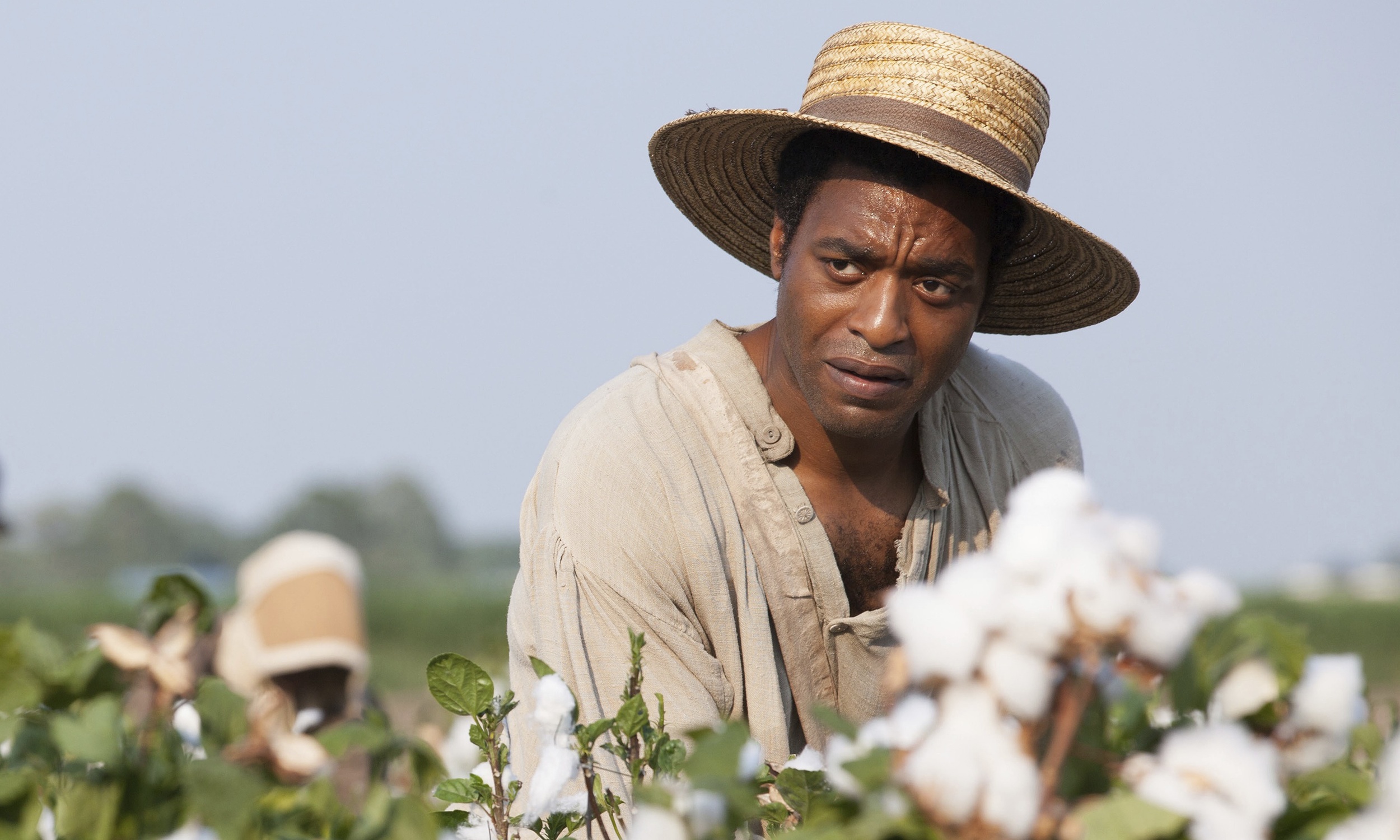This review was originally published in December 2013. The images are from the film and are not my own.
I went into this film expecting a harrowing experience, but excited none the less to see a challenging work of art. And as I watched it I found critiques, both positive and negative, hard to make due to the nature of the film’s subject matter. But there is a line in the film where Solomon says that he trusted those who kidnapped them because they were artists. And so even artists deserve correction.
The acting in the movie is, for the most part, outstanding. Chiwetel Ejiofor hits both the highs and lows, and is especially evocative during the lows. Michael Fassbender creates a character who is evil but not just a caricature (unlike the kidnappers who felt like side characters in a Tintin book).
The cinematography contributed powerfully to the story, not just the lighting (one scene right after Solomon is kidnaped shows his face in darkness and his captors face illumiated with light) but also the visual imagery (Solomon tightly winding his violin until it snaps right after Patsy’s brutal whipping). The music also added to the story, full of tension and grace without being distracting. (I was surprised to learn it was compared by Hans Zimmer. I'm used to him being bold or bombastic, not subtle and creative like this time.)
Steve McQueen’s previous works include Hunger and Shame, and he once said that both were part of the same story. They are concerned with human extremes (one with physical violence, the other with sexual violence; interesting that both of these themes come into play in 12 Years a Slave) and this film seems equally fascinated with human extremes. Many have said that the unflinching shot of Solomon hanging from a nose while his feet try to keep their bearing in the mud is a picture that describes the rest of the film - an unflinching look of a man stuck in an unnatural situation, in which he tries to avoid making false moves that will take his life. And the movie is more then anything else fascinated with this situation. Perhaps if it were a documentary the evils portrayed would have been more horrifying, but as an audience member we know that we are seeing actors subjected to these emotions and these acts of physical violence. And I wasn’t quite sure how to handle that.
What fascinated me more were the scenes with Benedict Cumberbatch’s character (another terrific acting job, what a repertoire this man is building for himself!) who plays an Anglican minister caught up in Solomon’s story. He and his wife have a conscience - you can see it in their eyes and in their actions. But they are part of a slave-owning and racially biased culture, so how can they reconcile the two?
Perhaps I can relate. I see our modern day evils, some of which are equal to the evils portrayed in the film. I look with compassion, but in the end I am part of a culture that endorses and has built its economy around it. The men of history who stand out, men like Lincoln and Wilberforce and Martin Luther King, were those who didn’t care about what the culture said and acted anyway.



